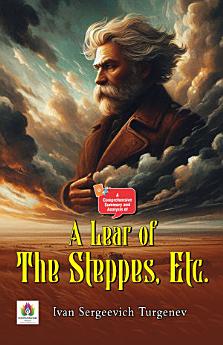A Comprehensive Summary and Analysis of A Lear of The Steppes, Etc.: Demanding Ebook Book
About this ebook
Through Turgenev’s masterful prose, readers witness Harlov’s descent from a proud patriarch to a broken man, grappling with the consequences of his misplaced trust. Yet, amidst the turmoil, Turgenev weaves a poignant exploration of resilience, redemption, and the enduring bond between humanity and the land. This analysis delves deep into the novella’s themes, dissecting the psychological depth of its characters, the cultural backdrop of rural Russia, and the timeless parallels to Shakespearean tragedy.
Perfect for literature enthusiasts and students alike, this book offers a detailed summary and insightful commentary on A Lear of the Steppes, illuminating why Turgenev’s work remains a cornerstone of Russian literature. It’s a compelling journey into a story of loss, betrayal, and the search for meaning in a changing world—a narrative that will grip your heart and leave you reflecting on the complexities of family and fate.
About the author
Ivan Turgenev, the acclaimed author of A Lear of the Steppes, is a titan of Russian literature, renowned for his ability to craft timeless narratives that explore the intricacies of human nature. Born in the 19th century, Turgenev’s work often reflects the cultural backdrop of rural Russia, as seen in this 19th-century novella. Drawing King Lear inspiration, Turgenev creates a Shakespearean tragedy through the story of a landowner struggles, Martin Petrovich Harlov, whose life unravels due to family betrayal and greed and heartbreak. This classic literature piece offers a character analysis of a tragic hero, delving into psychological depth and moral complexity. Set in the Russian steppes, the novella captures family dynamics and betrayal and loss, while also exploring resilience and redemption. Turgenev’s historical fiction narrative resonates with emotional depth, making it a literary tragedy that continues to captivate readers seeking a profound timeless narrative.








